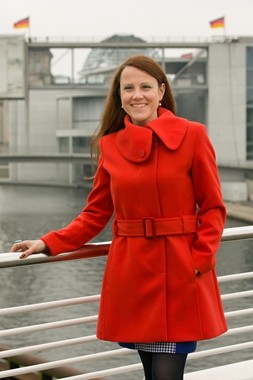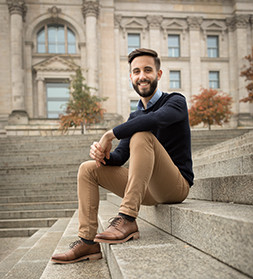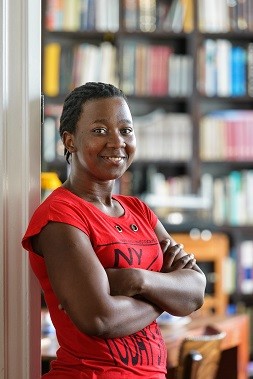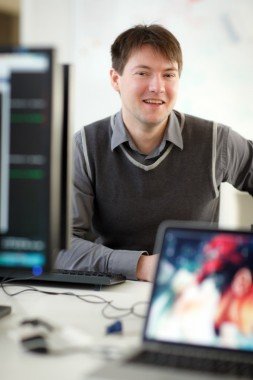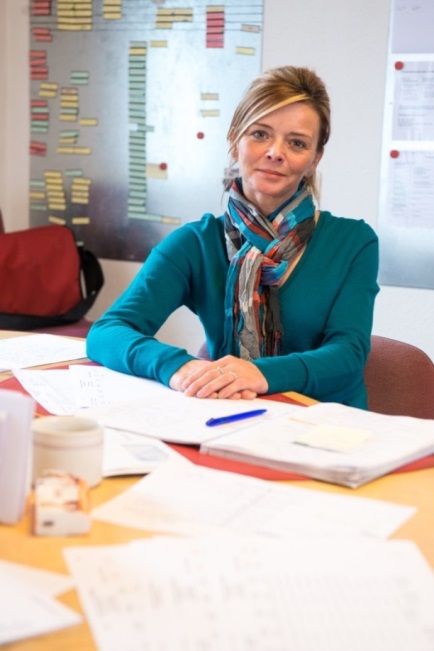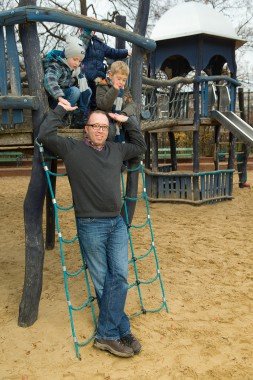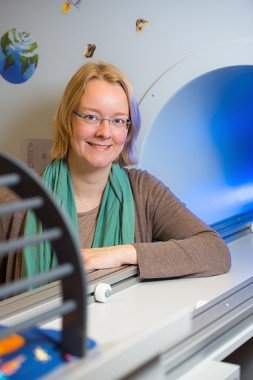The schooling of refugees: targeted concepts pave the way for integration
Hamburg, March 2018. An estimated 130,000 young refugees have been absorbed into the German school system since 2015. Most lack sufficient knowledge of German, many have missed one or more years of school and some have been traumatised by war and their refugee journey. Many of the young refugees living in larger cities go to so-called ‘segregated schools.’ (In Germany, the term ‘segregated school’ is generally used to refer to schools in which first-and second-generation migrants make up the majority of the student population.) The education of refugee children and adolescents puts schools and education policy to the test: How can these kids be successfully integrated into the German school system? What concepts in the schooling of young refugees have been successful? What kind of support are teachers asking of school administrations and of policies governing schools? Last but not least, how might we ensure over the long term that refugee children can achieve academic success and exploit their potential?
In many school districts, young refugees first attend a preparatory or welcome class before being assigned to a regular class. Lütfi Dede is a teacher of such a preparatory class, namely at the Schule an der Burgweide, a school in Hamburg where about 85 per cent of the students have a migration background. Currently, the school has two so-called basic literacy classes and one international preparatory class for newly arrived immigrant children, called Internationale Vorbereitungsklasse (IVK) in German. In 2017, the Schule an der Burgweide won the second place of the all-day school award granted by the Hamburg Chamber of Commerce for its all-day concept, and is among the 20 nominees for the Deutsche Schulpreis 2018, a German school award. It also participates in the pilot programme ‘Sechsjährige Grundschule – Schulen gestalten Zukunft’ (six-year primary school – schools shape the future).
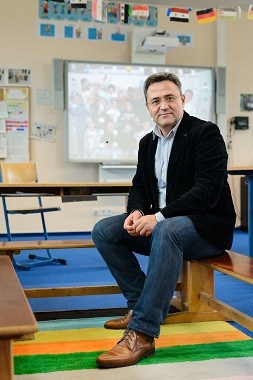
Lütfi Dede sees the challenges involved in teaching a multicultural, heterogeneous and often traumatised student body on a daily basis. However, he also sees the potential that these children bring, and the opportunities offered by a suitable concept for the education of refugee children. Dede himself immigrated to Herne (North Rhine-Westphalia) from Turkey in 1979 at the age of nine. Since he spoke no German at the time, he was first put in a preparatory class and then moved to a regular class one year later. He therefore knows the situation of immigrant children from his own experience. In 1984, he returned to Turkey, where he graduated from high school and studied German as a second language at university. He then taught at primary school for five years, was a teacher of German as a second/foreign language for six years, and also held the position of deputy headmaster. He was sent to Germany by the Turkish Ministry of Education on two occasions: From 1999 to 2004, he worked in remedial education , teaching Turkish to children with a Turkish background at the primary, lower secondary and secondary levels at a school in Bad Tölz; and from 2010 to 2015, he taught Turkish and social studies in a bilingual German-Turkish class in Hamburg.
Since 2015, Lütfi Dede has been the homeroom teacher of the IVK class at the Schule an der Burgweide. The students of his class, which is capped at 18 students, come primarily from war-torn zones such as Syria but also from Egypt, Romania and Bulgaria. His lesson plan is oriented towards the education plan of the state of Hamburg for German as a second language in preparatory classes, which also calls for teaching materials that are especially designed for this target group. However, the Schule an der Burgweide goes above and beyond the usual Hamburg standard in that most of its classes, even the regular classes, are staffed by two teachers. This also applies to the IVK class taught by Lütfi Dede. ‘In my experience, this is a crucial factor to successfully teaching this particularly sensitive group,’ says Dede. He also finds the smartboards which all classrooms are equipped with especially important for the basic and preparatory classes: ‘It’s much easier to learn a language if you can use the smartboard, which allows you to play the sound of the correct pronunciation and to work with audiovisuals.’ It should be noted that the funding for the double-staffing is largely sourced from Hamburg’s municipal school board, which allocates additional resources to inner-city schools attended by a disproportionately high number of children from socially disadvantaged families.
What is very important for the social integration of the young refugees in the basic and preparatory classes is regular contact, from the very beginning, with the children and adolescents from the regular classes. On Wednesday and Thursday afternoons, all students are comingled and take class together. The IVK and the basic classes also go on field trips and multi-day school trips together. According to Dede, often it’s simple ideas that foster community and give students a sense for what they’re capable of doing: ‘For example, we launched a kiosk where the kids prepare sandwiches for break. That makes them very proud. And often the immigrant children prepare tasty snacks from their homeland cuisine.’ So, children of the preparatory classes are integrated into regular school life from day one. ‘That is the strength of our school concept—not isolation but a sense of togetherness from the beginning. That said, the children and teenagers in my preparatory class all like to go to school and are eager learners. They hardly miss a day of school, are motivated and can transition into the regular classes after one year, and sometimes even sooner.’ Lütfi Dede also maintains close contact with the parents: ‘They can call me anytime. And they do get in touch with me when they’re worried, so I know that they trust me. This is very important for schoolchildren who have the refugee experience as part of their emotional baggage.’ According to Dede’s experience, one of the special burdens facing children and youth with a refugee background is having to live in mass accommodation centres: ‘Those places are very loud. The children hardly ever get any peace and quiet, they usually don’t get to sleep until late, and there are no rooms or spaces set aside where they can do their homework. Moreover, very often these youth live far away from the school they’re assigned to, meaning that getting to school and back takes a long time. For that reason, I find it very important that these children be assigned to a school nearby as much as possible, and that they don’t have to live in refugee centres for too long.’ According to Dede, another condition for the successful schooling of young refugees is psychological support, something which teachers are usually not trained in. ‘We need a lot more social educators at the schools. Our class has one trained special education teacher available. He manages the children’s kiosk, is in class for two hours on Thursdays, and monitors the children’s mental and emotional development.’ Close cooperation between teachers is also important according to Dede: At weekly team meetings, teachers from regular classes and IVK classes exchange ideas about students’ competences, joint activities and transitions into the regular classes.
The case of the Schule an der Burgweide shows: With a tailor-made, target-group-oriented concept, with facilities and equipment that is more customised to the challenges of segregation and, last but not least, with teachers such as Lütfi Dede, education and integration can be successful in segregated schools too.
Further information on the education of young refugees can be found in the English summary of the study (full text in German only) Schule als Sackgasse? Jugendliche Flüchtlinge an segregierten Schulen (Dead End Schools? Refugees at Segregated Schools in Germany).

